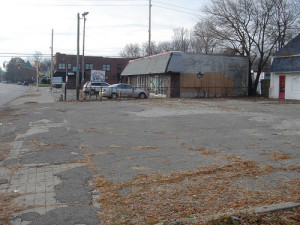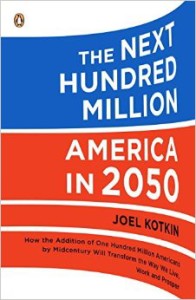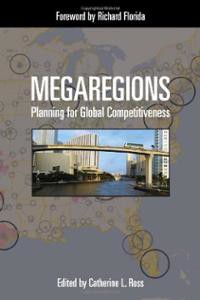This is the first in a short series of posts on the downsides of city-county consolidation. Actually, it might better be described as a discussion of some of the pros and cons of "big box" vs. "small box" municipal government. It is similar to business. It seems like every large business is either doing one of two things: centralizing or decentralizing. There's a sort of cycle of reincarnation about this. Every model has its flaws, and people tend to gravitate towards the other side of the spectrum from time to time when the problems of the … [Read more...]
Why Transit Used to Be Profitable and Isn’t Now
It’s a complicated issue, so here’s a little background (I have a Masters in Urban Planning so I’ve read a lot). Streetcar lines (and subways in some places) were profitable businesses, just like railroad lines. But there were a few features that we don’t have today. First, it was a new mobility technology so it opened up land that was too far away to be developed. There is no such land now in metro areas because highways and have cars make all areas equally accessible. Second, they were a real estate play as much as a transportation … [Read more...]
An Examination of City-County Consolidation
[ This piece will serve as a warm-up to a forthcoming series on the downsides of the consolidation of US city and county governments. I updated it from the original with a bit of information about the current mayoral election in Louisville. ] H. V. Savitch and Ronald K. Vogel of the University of Louisville authored the paper "Suburbs Without a City", analyzing the merger of Louisville and Jefferson County, and in the process making many good observations about or relevant to other consolidated cities like Indianapolis and … [Read more...]
Joel Kotkin on the Future of the Heartland
Joel Kotkin is an unpopular figure in many urbanist circles. I suspect that doesn't bother him too much. His writing suggests he even delights in it at times, as he seeks out perhaps the most provocative contrarian examples he can find to challenge urbanist conventional wisdom. He champions Houston as a paragon of urban success, for example. And he's been known to extol the popularity and virtues of the suburbs. A typical piece is his 2005 "Rule, Suburbia: The Verdict's In, We Love It There." Among his various ventures, Kotkin is the … [Read more...]
Preserving Our Mid-Century Heritage
We walk around the hollowed out remnants of our old downtowns and wonder, “How did this happen? How could generations past have done this? How did they tear down all those wonderful 19th century buildings? Didn’t they know?” Yet I also wonder, will we ourselves bring the same thing into being? It’s common for us to note the moral failings of the past. It’s less easy for us to imagine how future generations might find us wanting. Leslie Poles Hartley famously wrote, “The past is a foreign country; they do things differently there.” This … [Read more...]
It Falls From the Sky
"When the well’s dry, then we know the value of water" - Benjamin Franklin"Whiskey’s for drinkin’; water’s for fightin’" - Western aphorism It used to be that people and policymakers in the eastern portion of the US (roughly east of the 100th meridian, which is the western boundary of the main body of Oklahoma) didn’t worry about having enough water. After all, that part of the US has abundant rainfall, mighty rivers, relatively frequent floods, and infrequent severe droughts that always end before the lakes go dry. Under such circumstances, … [Read more...]
The Giant Sucking Sound
"Nearly all rich and powerful people are not notably talented, educated, charming, or good-looking. They became rich and powerful by wanting to be rich and powerful." - Paul Arden"But God has chosen the foolish things of the world to confound the wise; and God has chosen the weak things of the world to confound the things which are mighty." -I Corinthians 1:27 This is the latest installment in what has become a trilogy of sorts on talent and migration. (See also "Out-Migration Devastates Michigan" and "The Outsiders"). When I … [Read more...]
Building Suburbs That Last #4 – Supporting Home Based Businesses
This is another installment in my periodic series "Buildings Suburbs That Last". Rather than restate the intro yet again, I'll just encourage you to read the setup to this series, as well any any earlier installments you care to. The Setup: Review: Retrofitting Suburbia Part One: Strategy Part Two: New Urbanism and Parcelization Part Three: The Mother of All Impact Fees Extra: End Property Tax Collection in Arrears A lot of the discussion of sustainability in the suburbs revolves around New Urbanism. I think this can have a role … [Read more...]
A Midwest Megaregion?
This is the last installment in my series on megaregions. The first was Mega-Skepticism, an earlier take I had the was down on the concept. The second was a review of the book "Megaregions", edited by Catherine L. Ross. In this piece I am going to look for potential applications of megaregional geography to the Midwest. Since my blog is about cities, I'll primarily focus on the large urban aspects. While there is not a truly hierarchical relationship between cities in the Midwest, it is useful to think of it like a solar system. Chicago … [Read more...]
Review: Megaregions, Edited by Catherine L. Ross
"The long-term utility of the megaregion as a distinct planning scale is still unproven. Does the megaregional approach confront or evade the core planning issues of equity, democracy, livability, economic vitality, and design excellence? If Jane Jacobs old quip about a region being 'an area safely larger than the last one to whose problems we found no solution' remains cogent, then the current interest in megaregions represents either a logical territorial scaling up to match the rapid expansion of regions, or another attempt by stalwart … [Read more...]
- « Previous Page
- 1
- …
- 30
- 31
- 32
- 33
- 34
- …
- 36
- Next Page »


